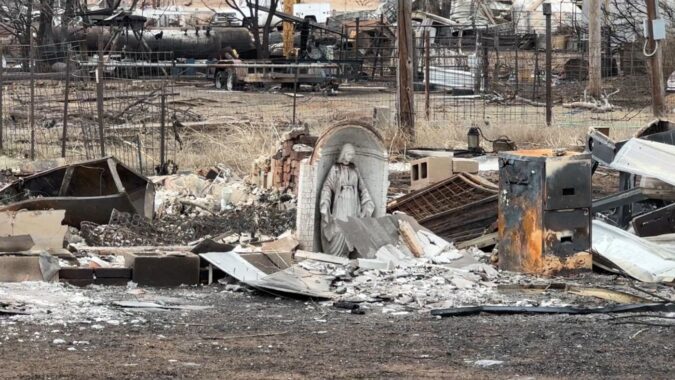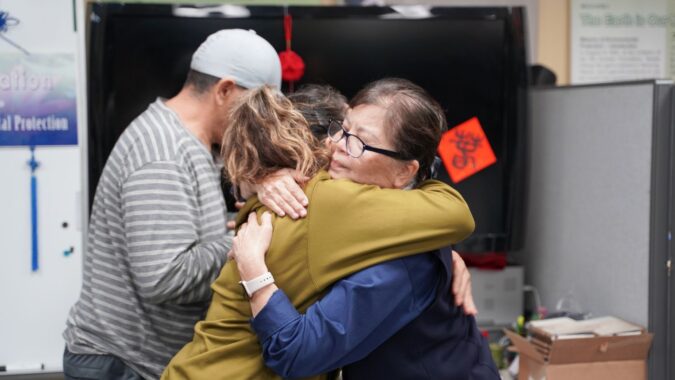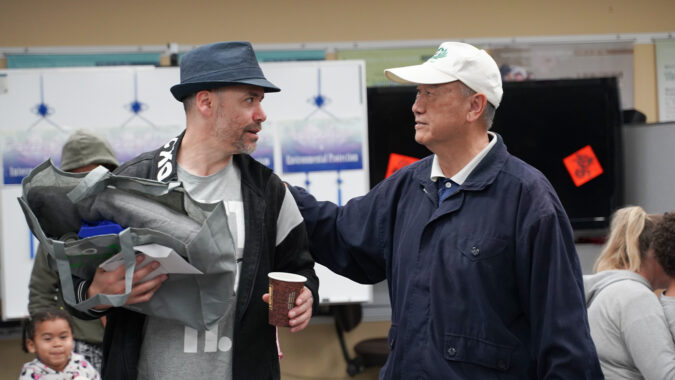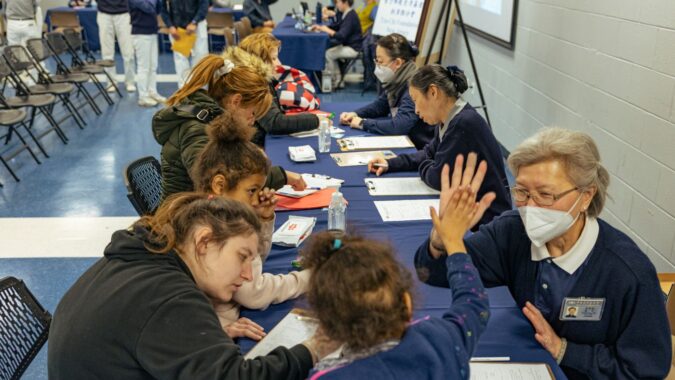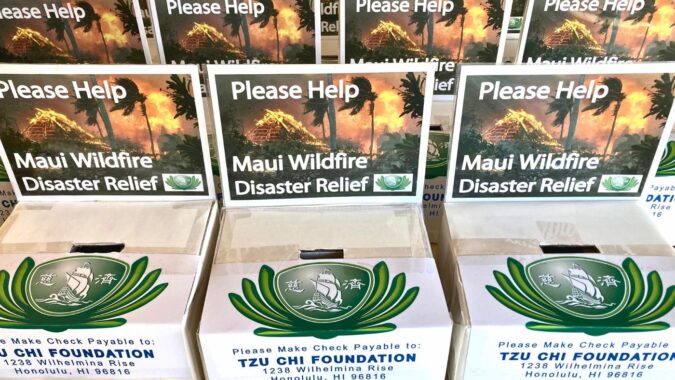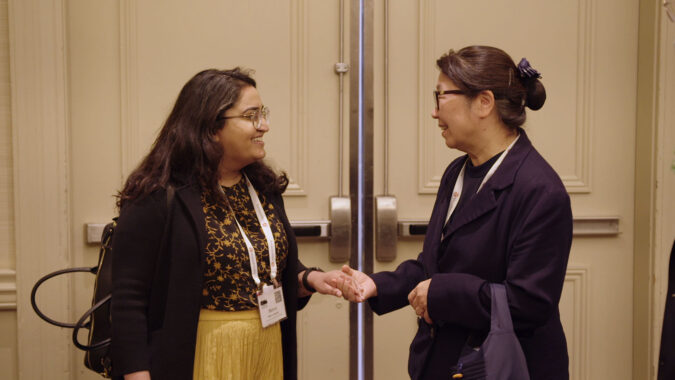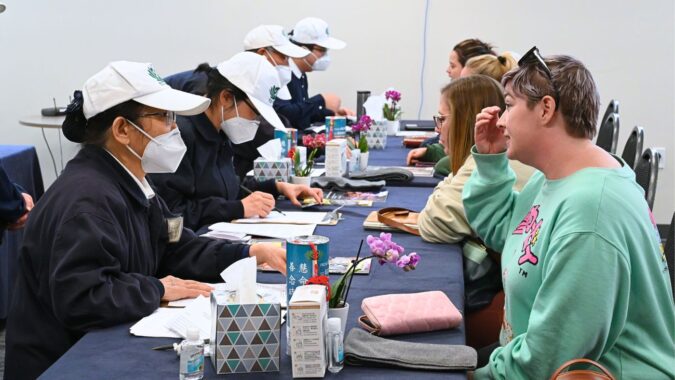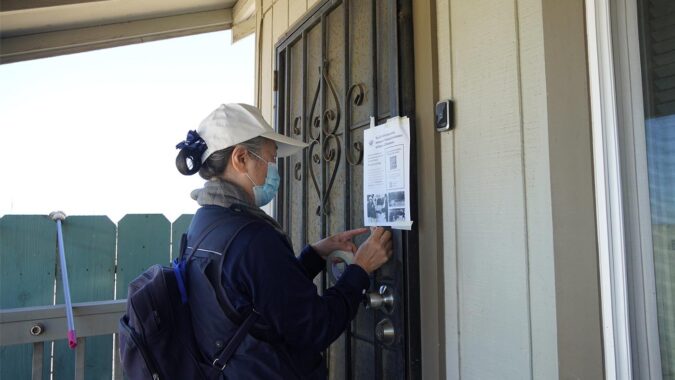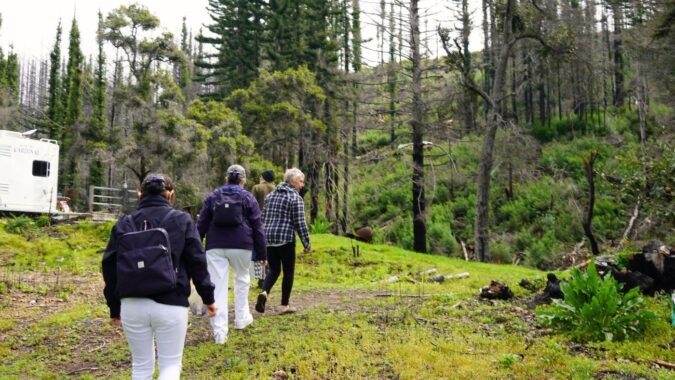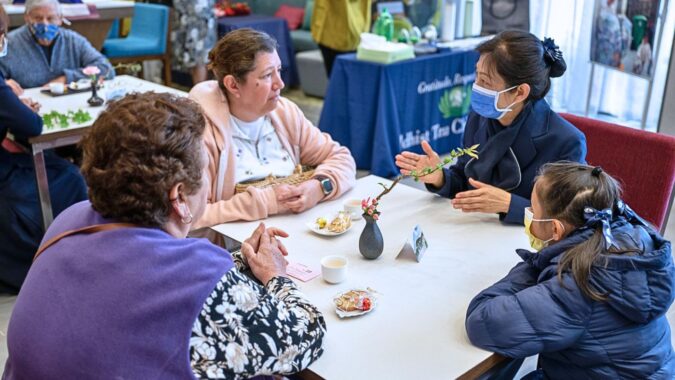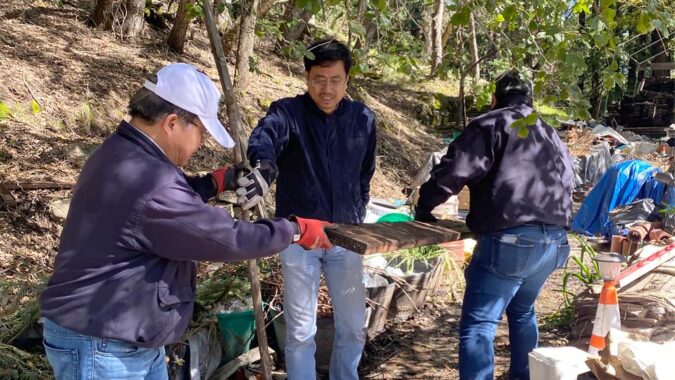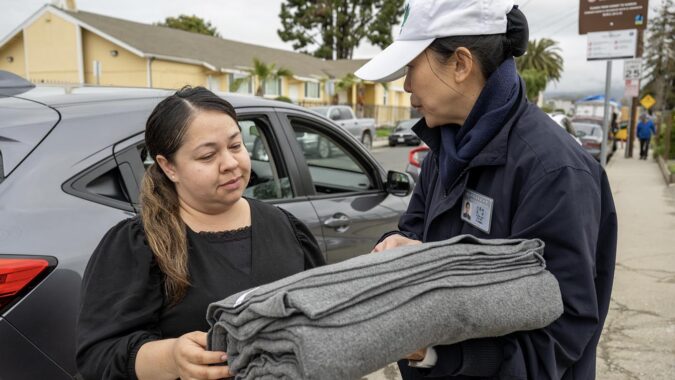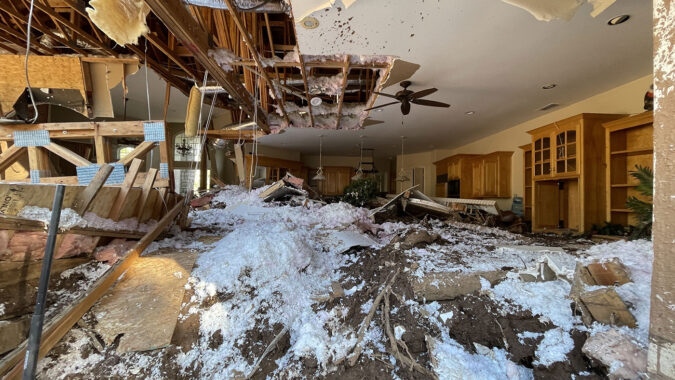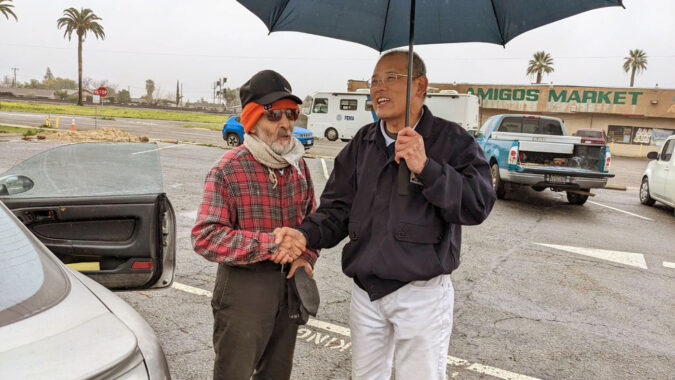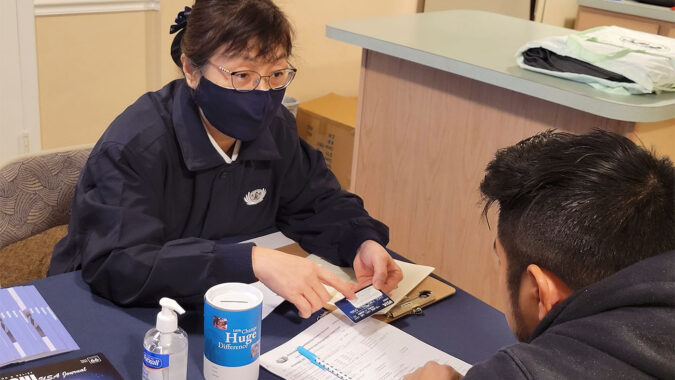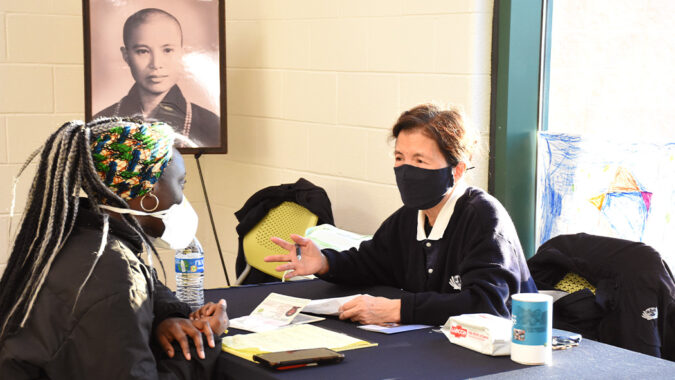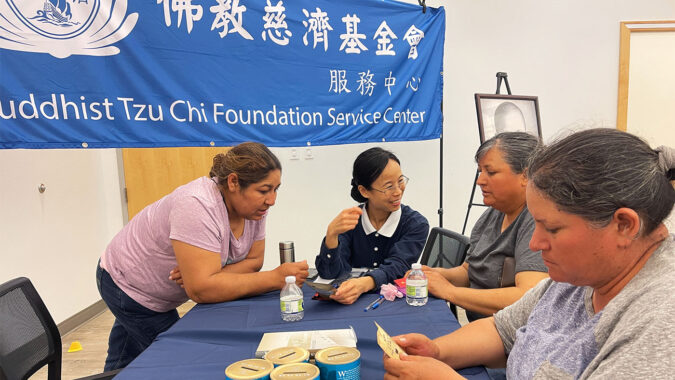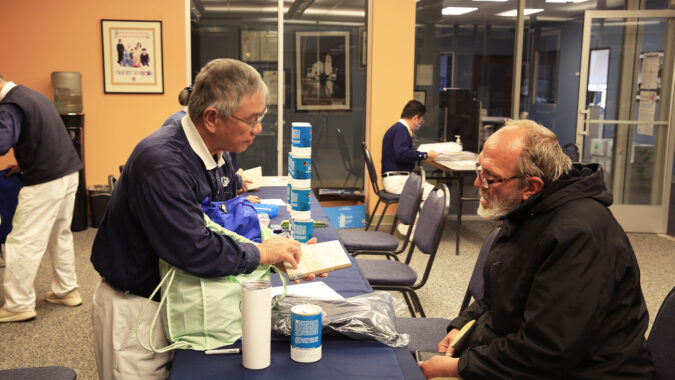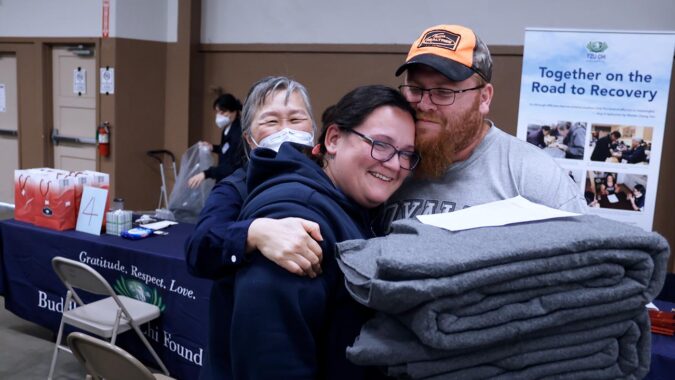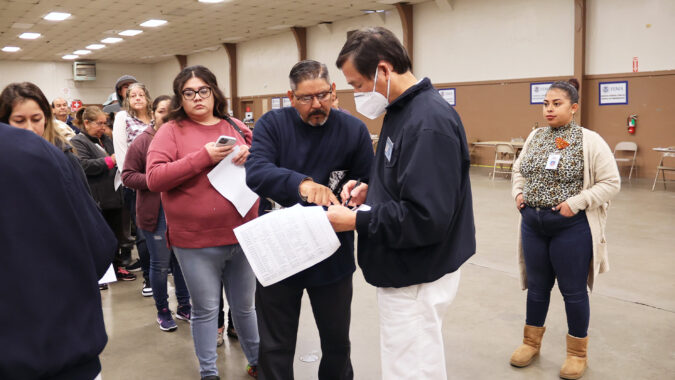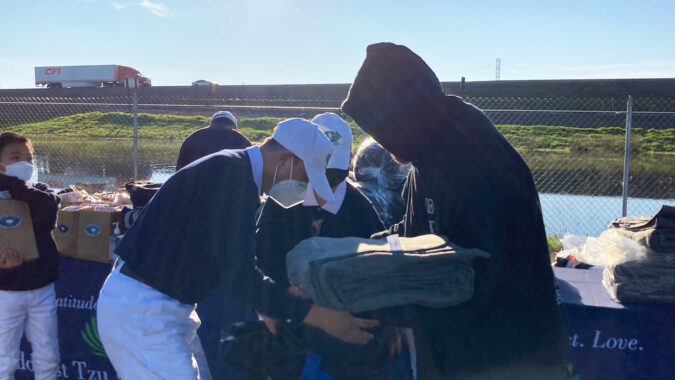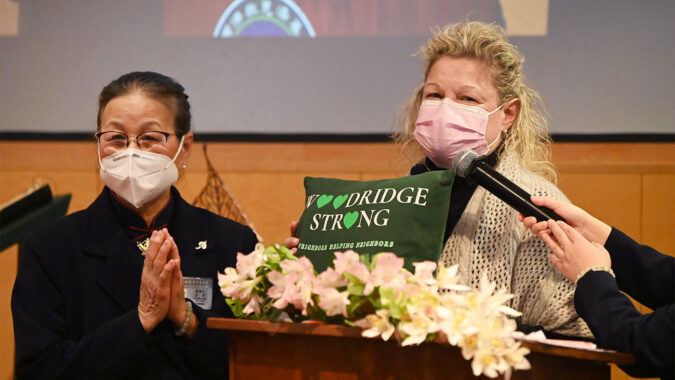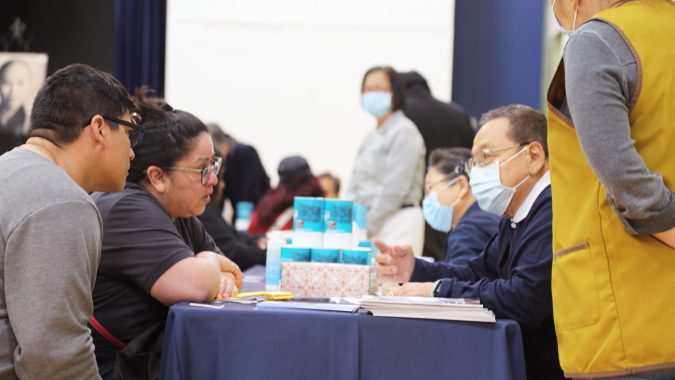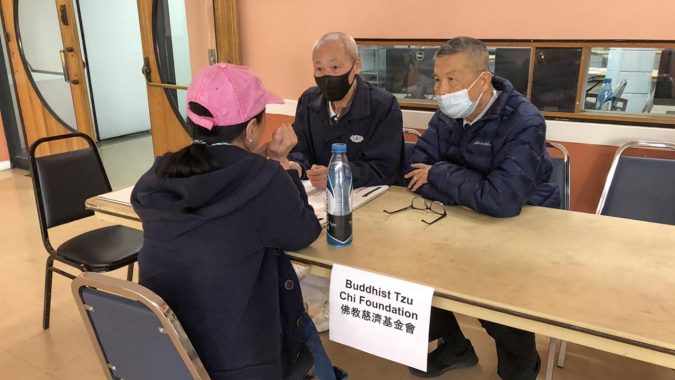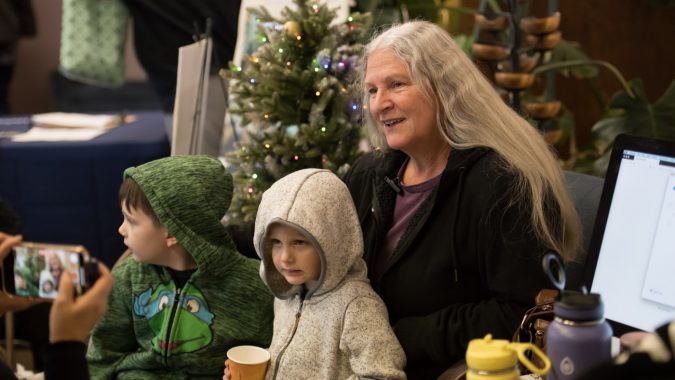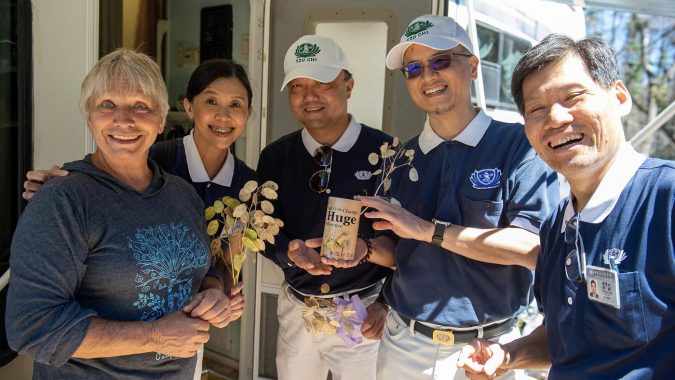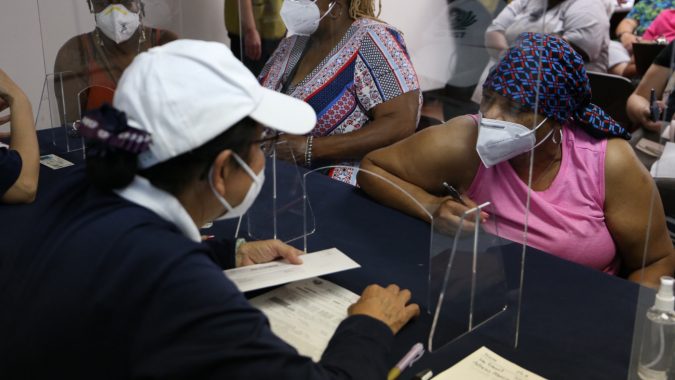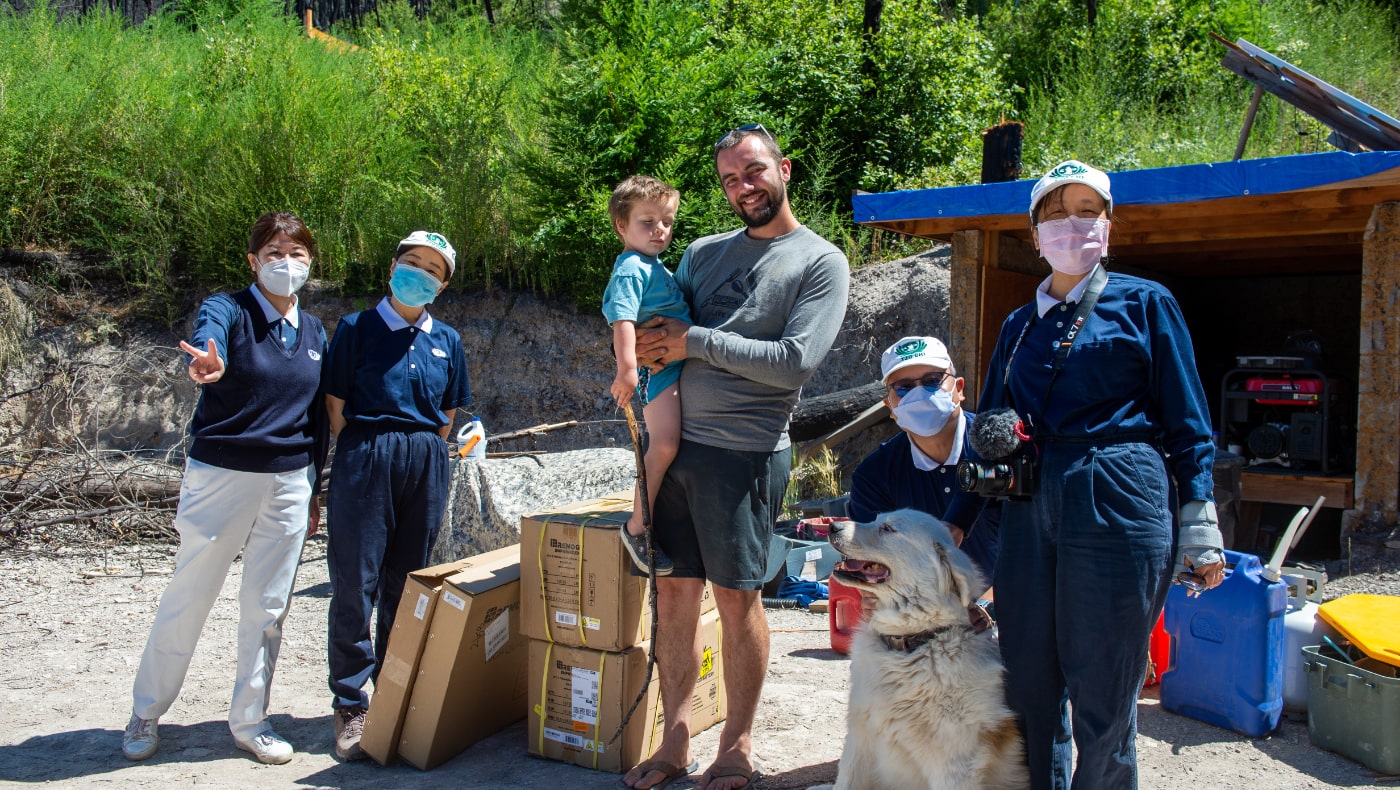
Written by Christina Chang
Translated by Hong (Ariel) Chan
Edited by Maggie Morgan
“When the fire came, my eldest son had just turned one. After the fire, the entire forest in the mountainous area was scorched black. Now that my eldest is three years old, he always says that the trees are black, not the green they should be.”
This was Allegra Keller’s devastating account of the CZU Complex Fire in Santa Cruz. Allegra and her family were deeply impacted by the natural disaster, and she described in detail how the fire destroyed the Last Chance community where they lived. The lightning fire occurred on August 16, 2020, and burned for 37 days. The fire burned for over a month, but the disaster areas are still impacted today, over two years later. It was as if Allegra was telling Tzu Chi about the traumatic event through her son’s eyes, as his earliest memories will be heavily focused on the flames.
Last Chance Was Lost, But is Finding Hope
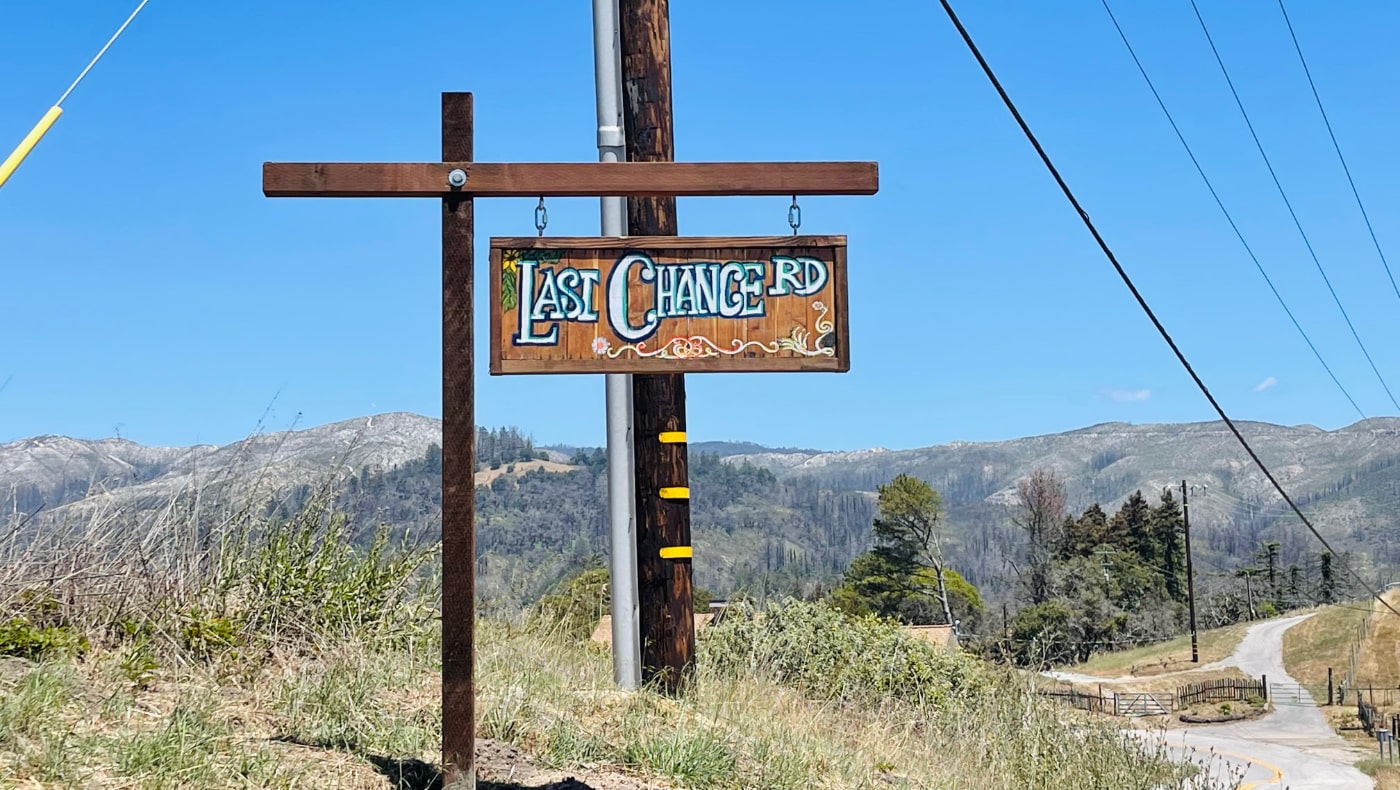
The Last Chance community is located in the remote mountains of Santa Cruz, in the southern part of the Northern California Bay Area. The small village is what is known as an “unincorporated community”, meaning it’s not governed by a local municipality. The people who call Last Chance home have always worked together in harmony, living off the land and helping one another. The village didn’t use commercial hydropower but relied only on natural resources for their livelihoods.
The horrific irony is that nature itself is what struck down the community during the Santa Cruz CZU Lightning Complex Fire. The flames took out dozens of houses and flipped the small neighborhood upside down. Last Chance’s remote location has made reconstruction extremely difficult thus far. In total the lightning fire spread over 86,509 acres and across two counties, so it’s no surprise that a catastrophe of this proportion would wipe out the tiny village as it burned through.
After the fire, residents gathered on the first Sunday of each month to hold meetings at the community outdoor plaza. The sessions served as a platform to discuss the progress of the community’s redevelopment and the rebuilding of their collective home. The road to reconstruction has been long and difficult, constantly challenging the patience and courage of Last Chance residents.
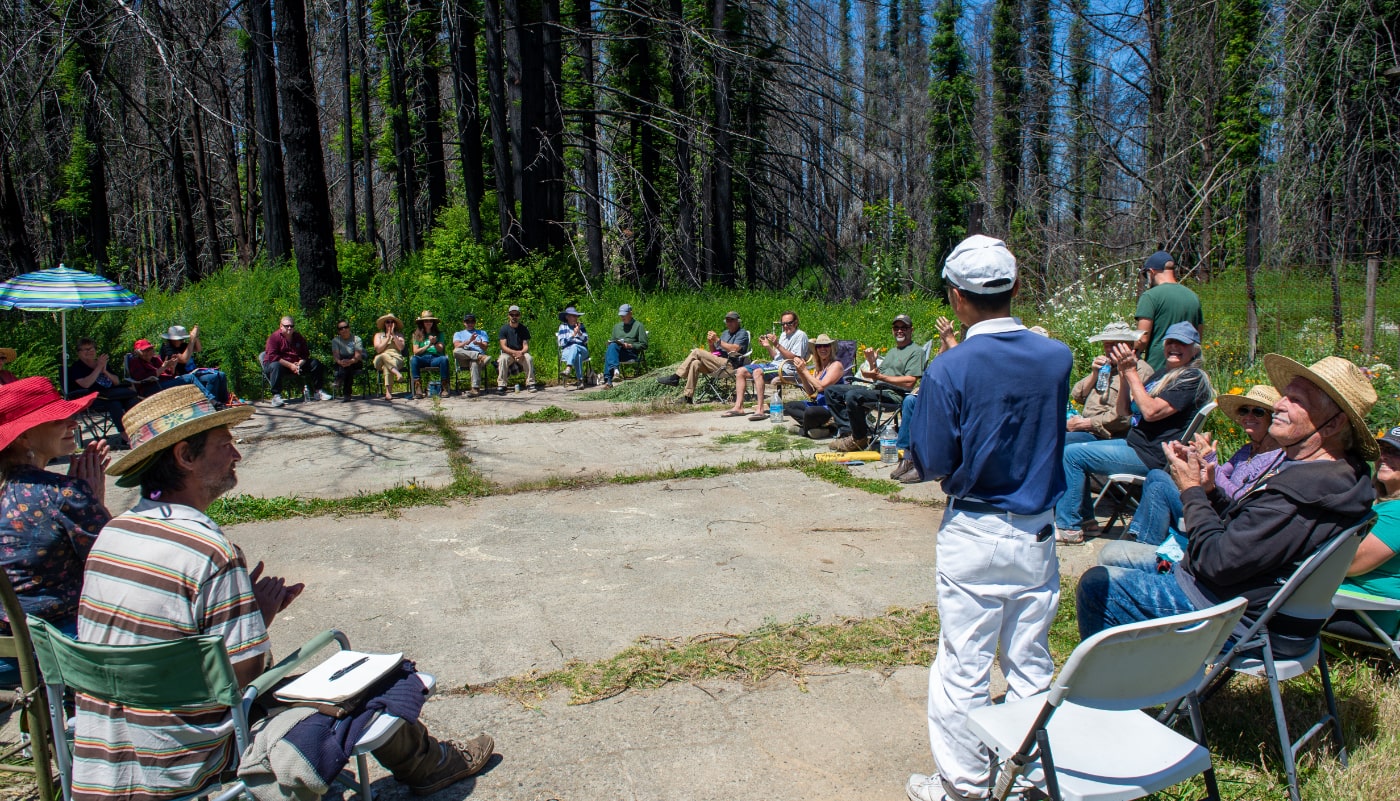
Tzu Chi volunteers in Silicon Valley first got in contact with residents of Last Chance directly after the disaster in the summer of 2020. After holding an emergency cash distribution, volunteers have been keeping in touch with community members by participating in their monthly meetings. From offering cash cards to donating daily life necessities, Tzu Chi volunteers have remained by their side.
In 2022, volunteers established case follow-ups for individual disaster survivors, offering timely assistance for each family. On Sunday, June 27, the Tzu Chi team personally delivered water heaters, large batteries, and four large solar panels to residents to address ongoing issues resulting from the fire. The hope is to secure residents in having a steady foothold on their rocky path to reconstruction.
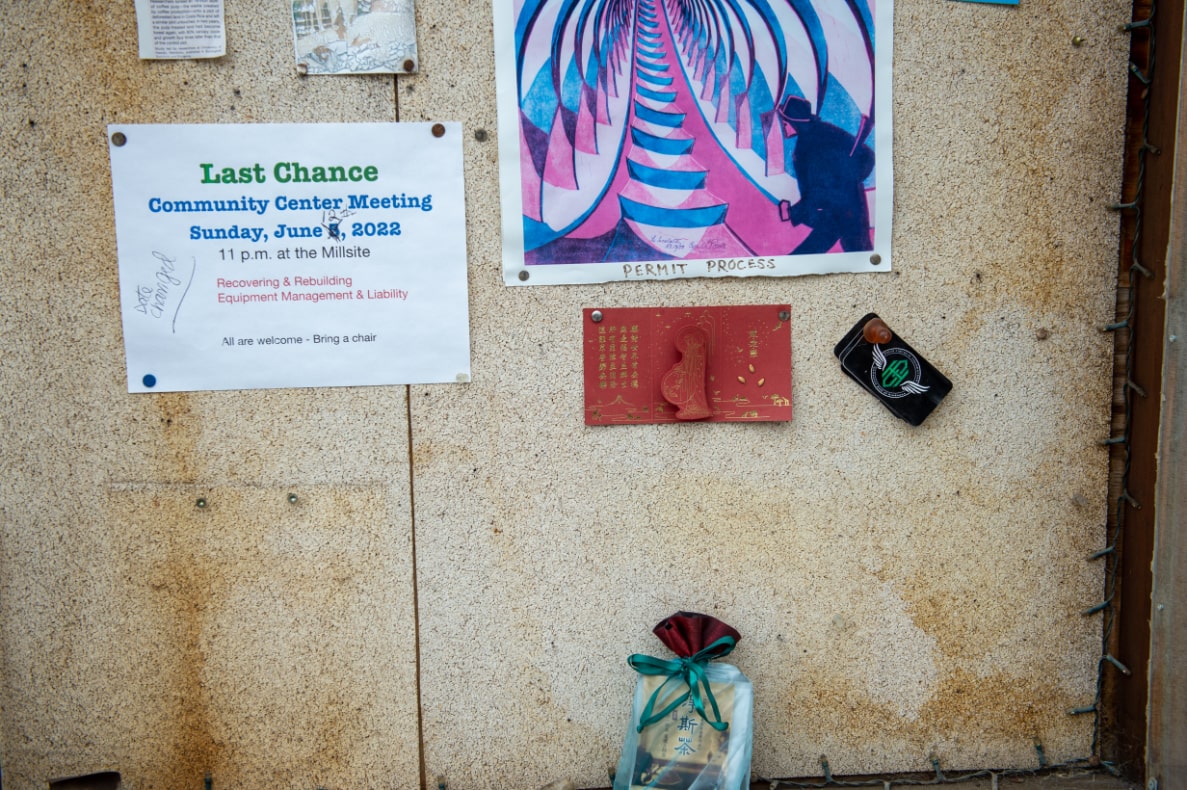
Three Generations of Homes Gone in One Night
Allegra and Geoffery Keller have known each other since high school. It’s now been over a decade since they’ve lived in this mountainous community together, but Allegra’s family has called Last Chance home for much longer. Allegra’s grandparents, parents, and herself have lived in this quiet village for three generations.
When the mountain fires mercilessly set the community ablaze, they not only burned down the three generations’ hard-earned life in the mountains but also crushed their dream of raising the fourth generation in this little wooden cabin. Their home was swallowed whole by the flames and reduced to a cloud of ashes in the now charred woods.
Geoffery was originally a firefighter. When the wildfire hit, he was on the front lines. Allegra contacted him and asked him to go home as soon as possible to assist his family and child in the emergency evacuation. “At that time, Geoffery had been working day and night to fight the fire, and he had not closed his eyes for three straight days”, Allegra remembered.
Geoffery dragged his tired body back to the mountain. Not long after the family had packed basic essentials, the situation quickly worsened. The fire was rushing behind them, and thick smoke filled the only road in and out of the mountain. Fortunately, the dozens of neighbors were able to work together to help each other. The residents successfully evacuated, but there was nothing left of home when they looked back behind them.
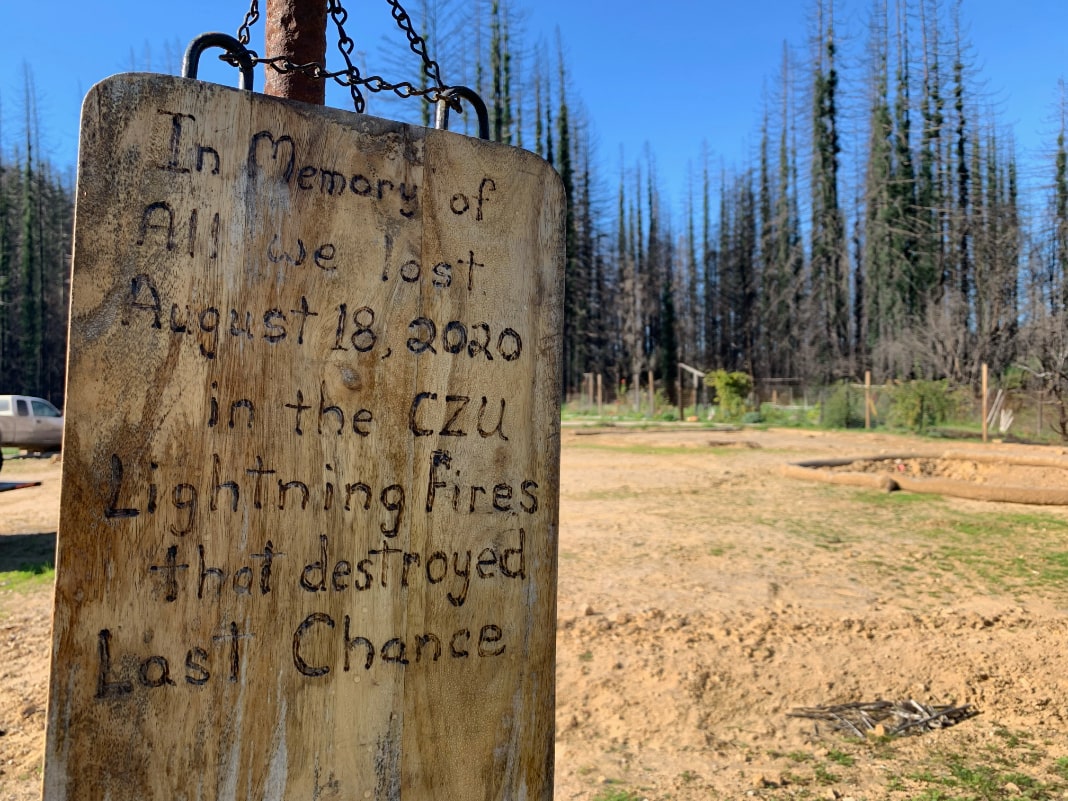
Life After Loss: Starting Over After the Fire
After the disaster, Geoffery and Allegra made the choice to return to the mountains with their one-year-old son and Allegra’s parents. Since the community and its forest had been scorched to ashes, there was still more work to be done before entering any sort of reconstruction phase. Geoffery had to quit his job as a firefighter in order to concentrate on the rehabilitation of his community’s land.
The family lives in a small trailer borrowed from a friend. In the mountains where water and electricity are scarce, self-reliance is needed for survival. However, with the support of community mutual aid and charities, the family has been able to keep tackling obstacles with a positive attitude.
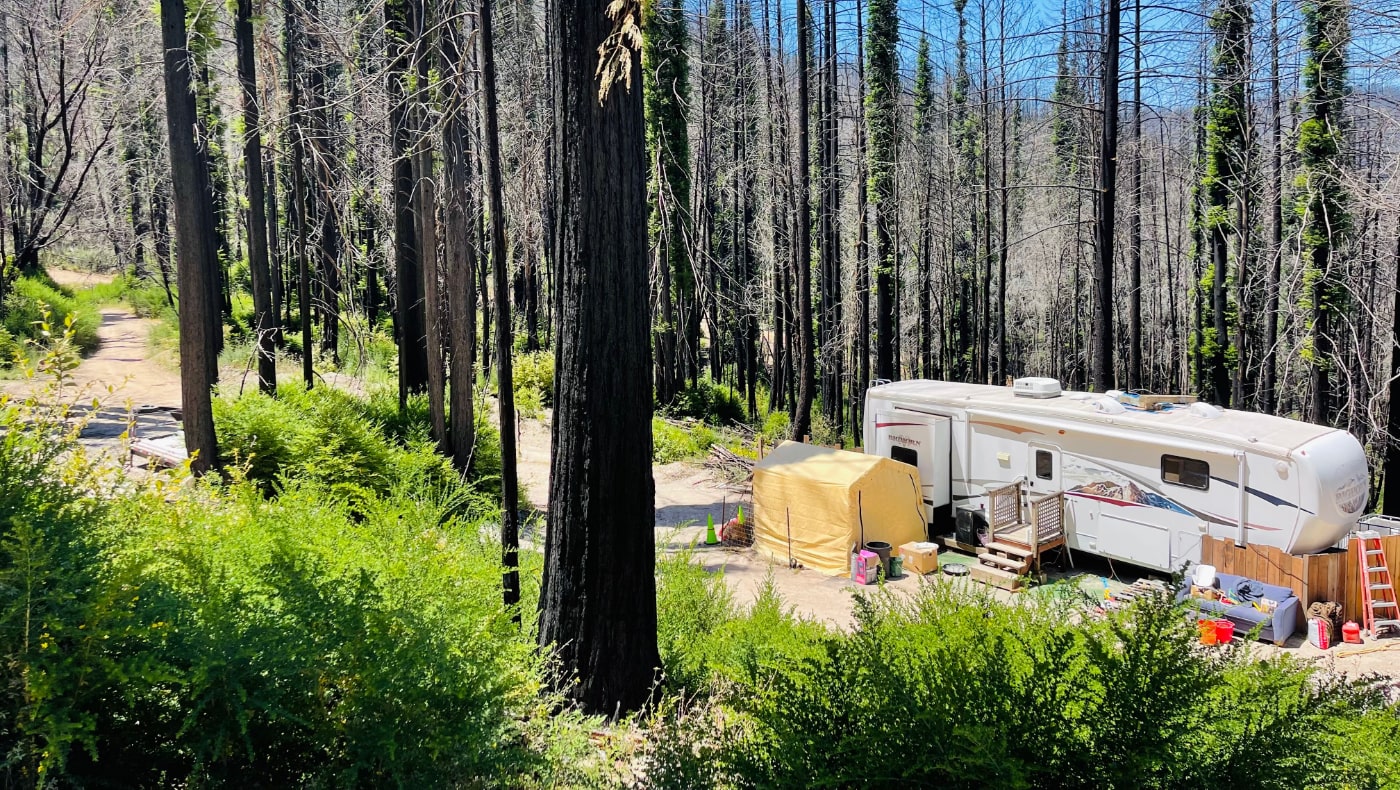
At the beginning of May 2022, Allegra gave birth to a pair of healthy twin boys. In order to have enough living space to accommodate the new members of the family, Geoffery purchased a tent-like Yurt with a credit card. With the help of neighbors, they erected it on a small slope near the original trailer as a new home for the now family of five.
A second-hand barbecue grill and a small stove for boiling water were placed next to the Yurt as a minimalistic kitchen. Meanwhile, they used a generator, two solar panels, and a large battery to provide electricity for day-to-day living.
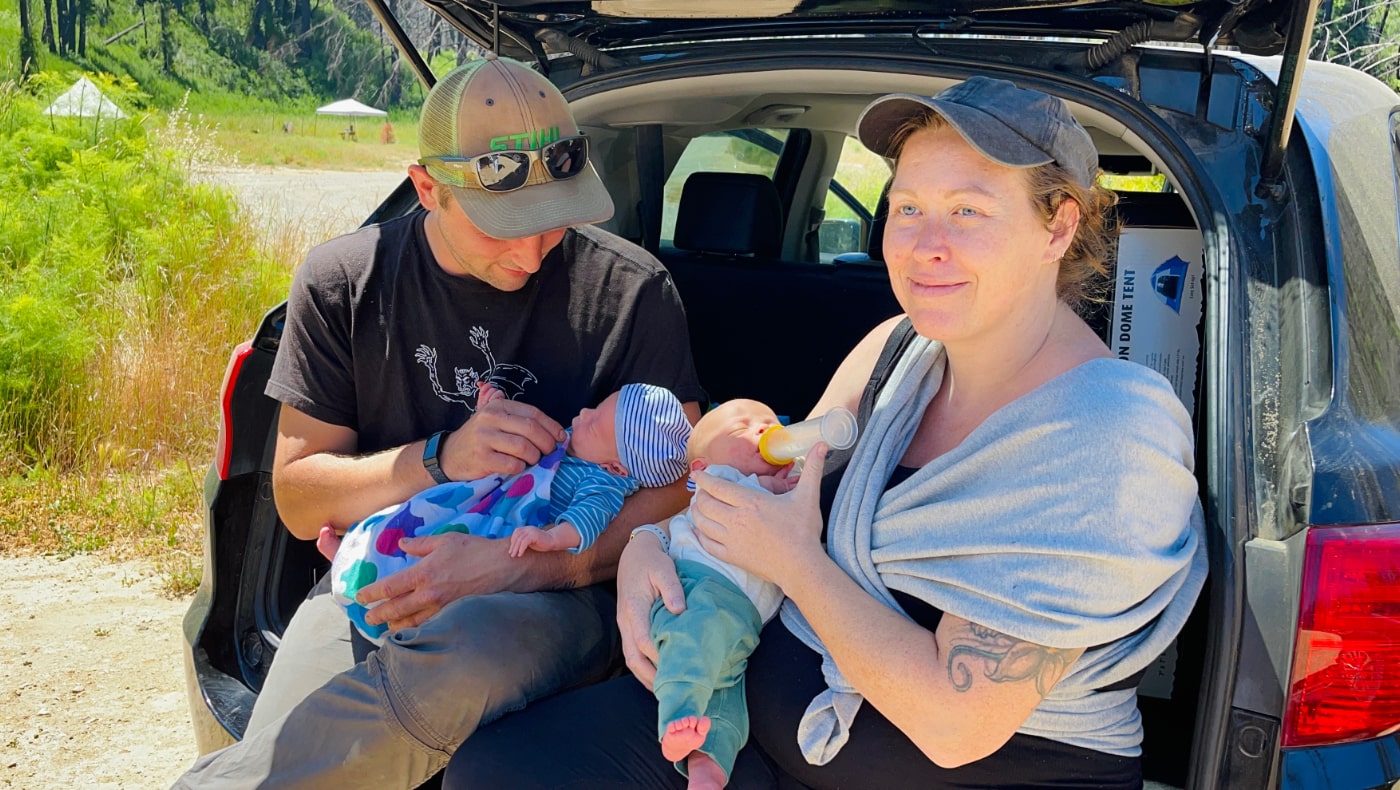
It’s hard enough to take care of newborn twins and a three-year-old. This kind of lifestyle makes parenting an entirely new type of challenge.
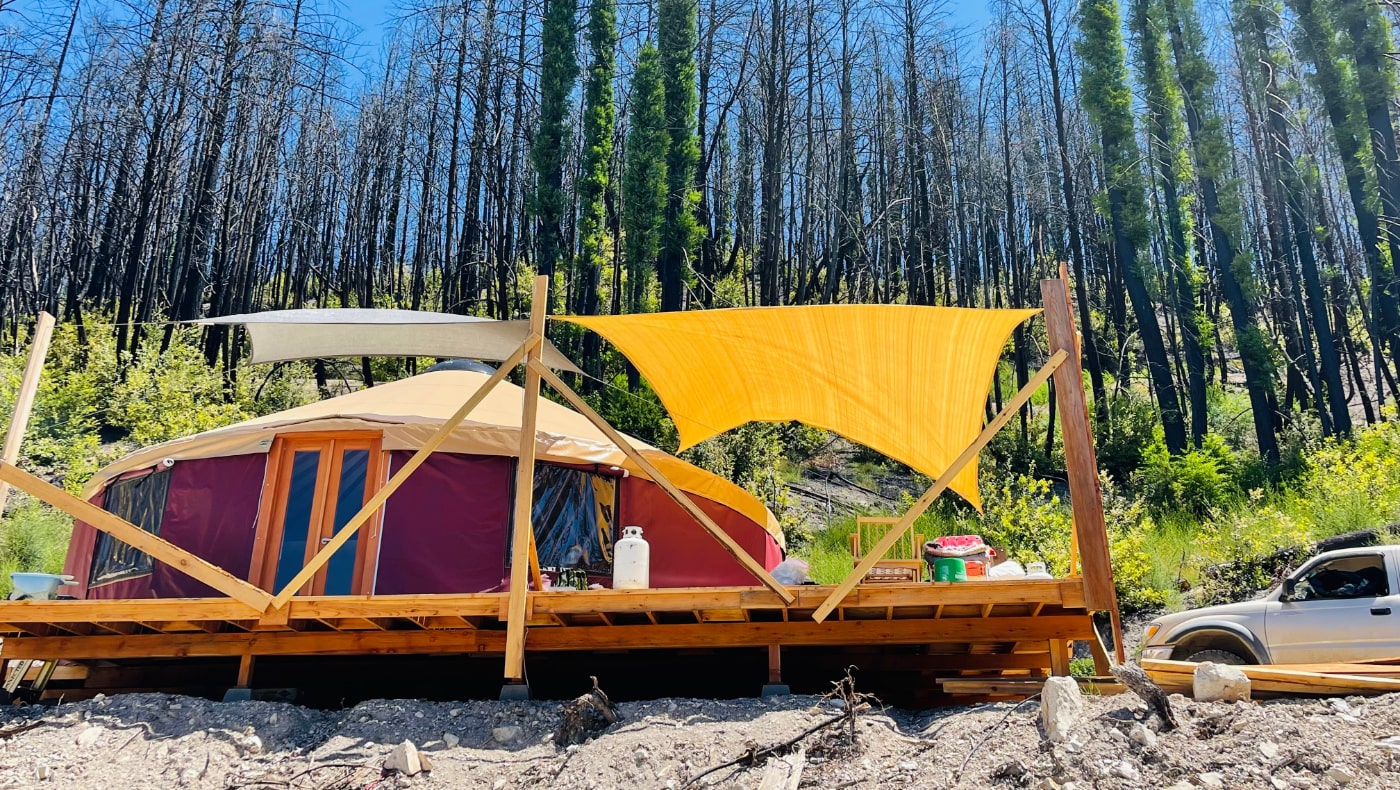
Inflation soared the cost of fuel, so running generators exceeded the family’s budget limits. The twins and a three-year-old required enough hot water to keep their bodies clean and supply their dietary needs. Allegra needed a normal kitchen for cooking, her own nutritional needs to supply breast milk, and sustenance for the entire family. These are all urgent livelihood issues that need to be solved immediately.
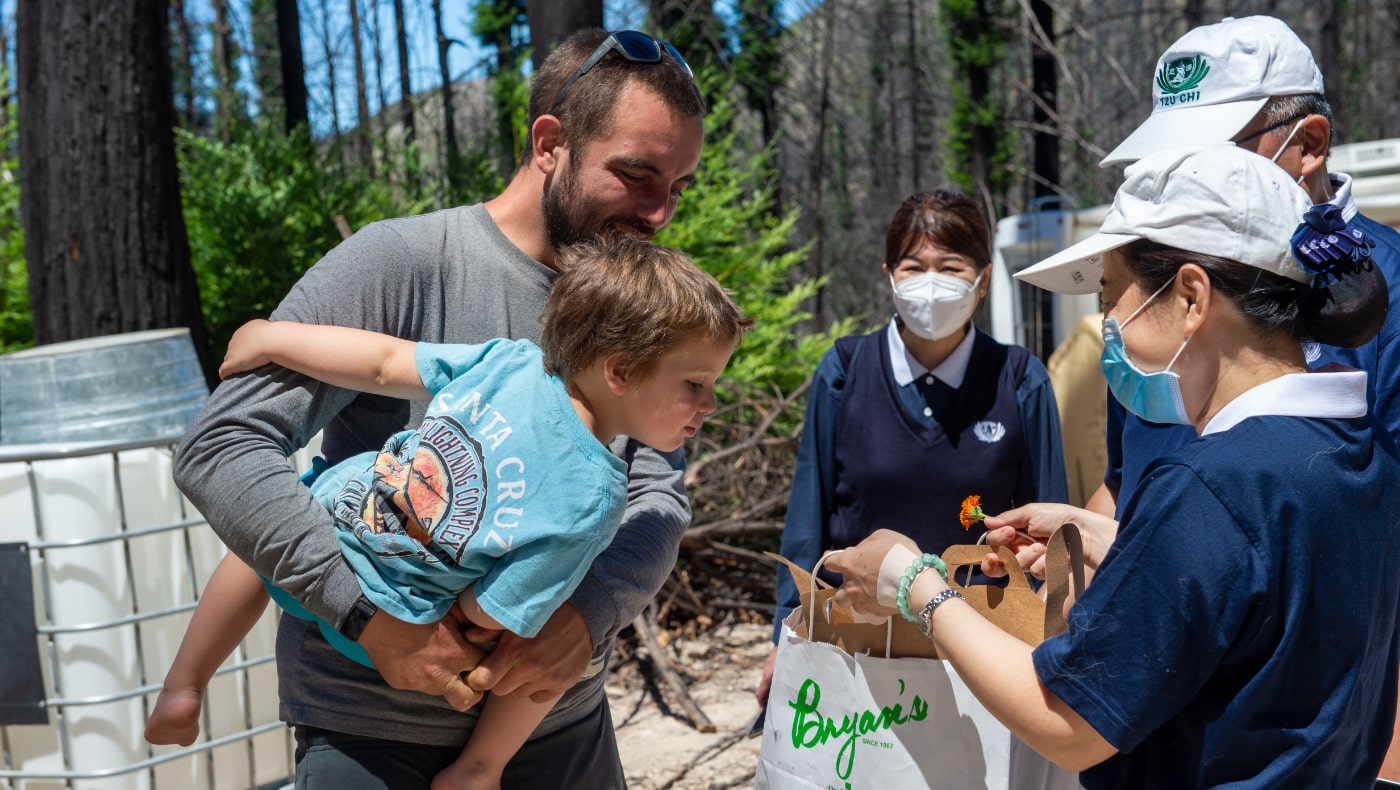
Home is Where the Heart is
Tzu Chi volunteers in Silicon Valley continued to care for Last Chance in any way they could.
“We feel that this case needs us to make it the highest priority,” said volunteer Eric Chuang. Eric has been working together with other volunteers to deliver urgent supplies to Geoffery’s family.
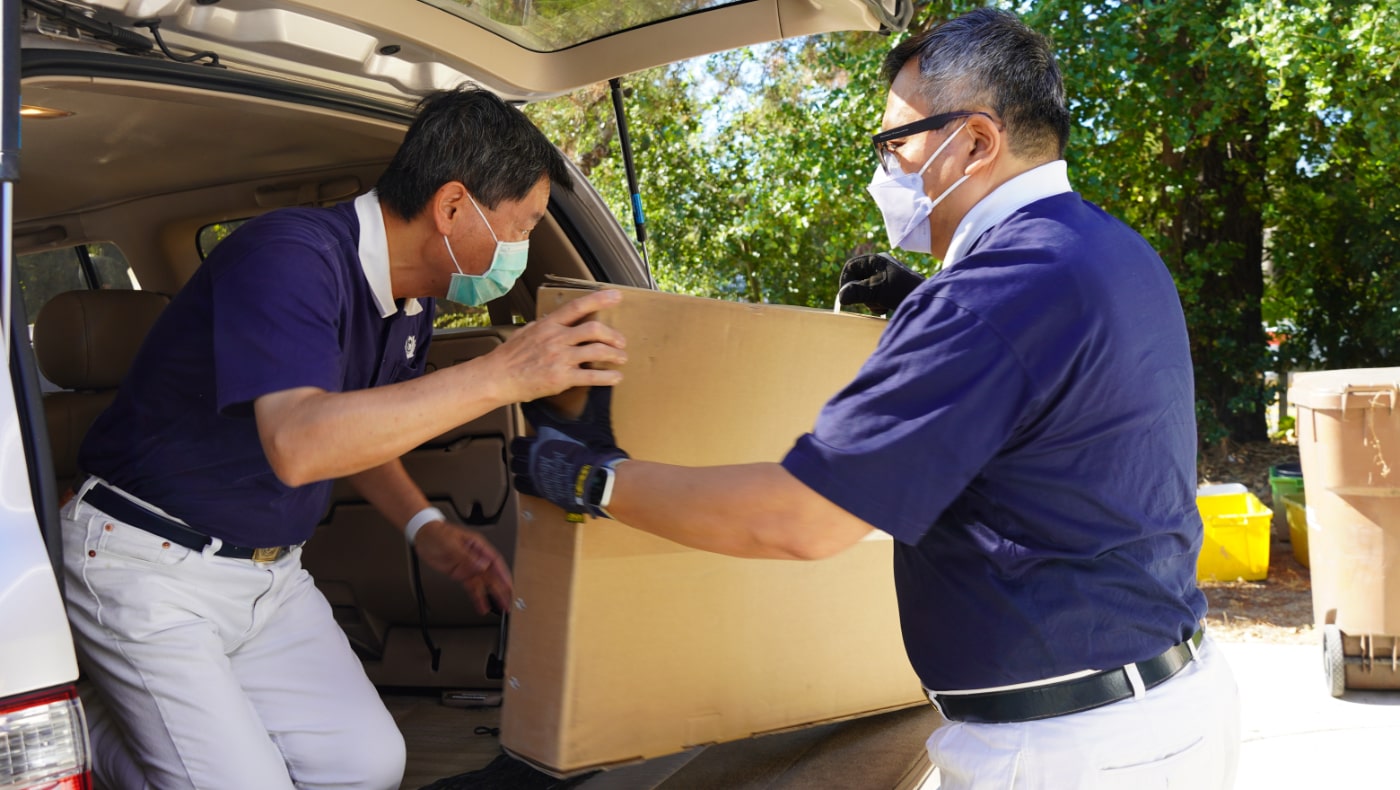
We need to stabilize their living environment in a timely manner and make it an environment suitable for child rearing.
Eric Chuang
On a Sunday morning in June, Geoffery received a water heater, large batteries, and four large solar panels personally delivered by Tzu Chi volunteers.
These delivered materials allow us to start our home, make our life a little more comfortable, take a shower more often, and have more complete kitchen equipment. These are all very important and necessary. Thank you very much!
Geoffery Keller
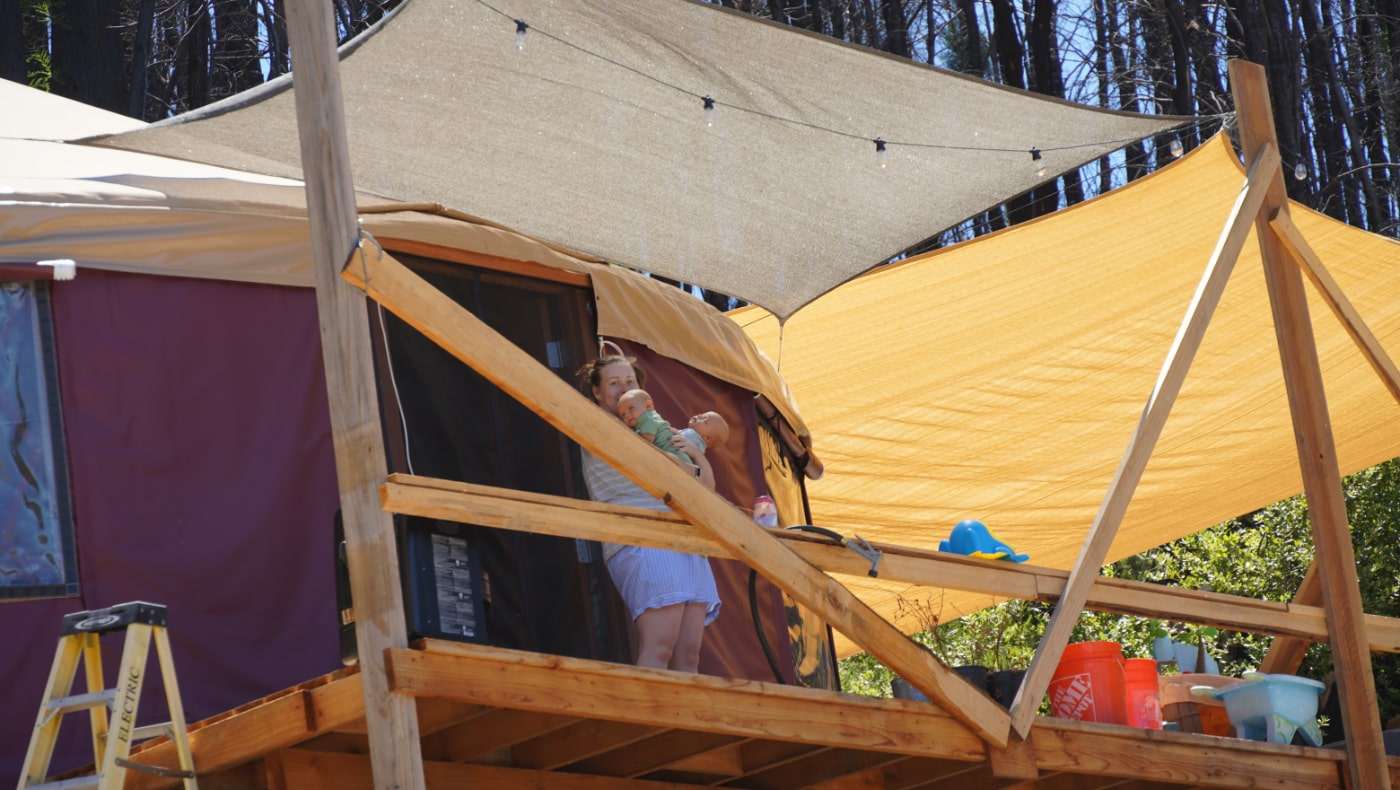
Aside from the Kellers, Tzu Chi has opened a total of six follow-up cases in Last Chance. Volunteer Emily Polivka found that each family has different challenges and the team works to find individual solutions for each. Emily is passionate about communicating and coordinating with both internal and external resources to get the job done.
The mountain fire victims have nothing. I have to give myself three to five years before I can see progress and slowly help them return to their normal life. So I need various institutions in the society to help provide necessary resources and assistance.
Volunteer Emily Polivka
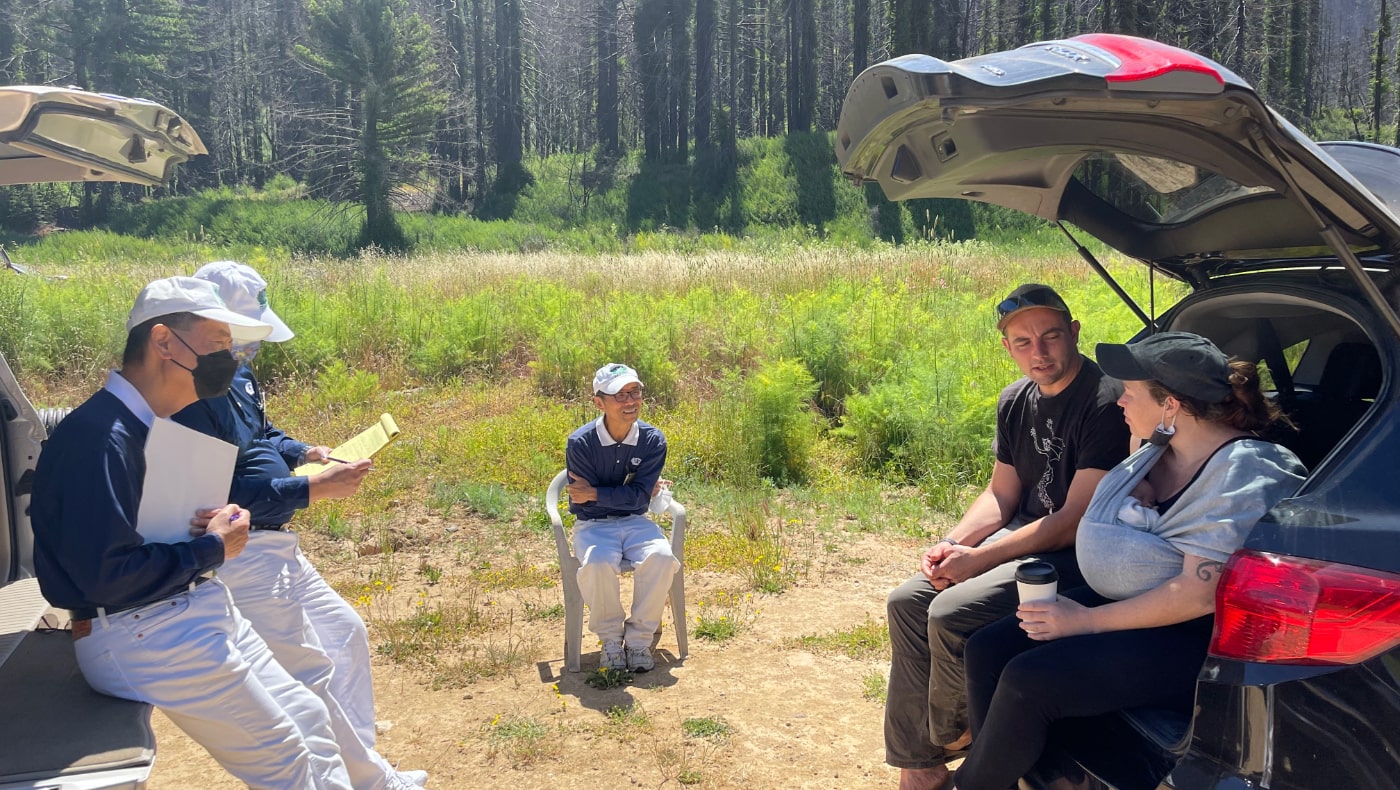
Rising From the Ashes
In the early summer of 2022, on the charred wood in the mountains of Last Chance, patches of greenery could already be seen. Allegra held the twins, who had just woken up in her arms, to greet visiting Tzu Chi volunteers warmly. Geoffery and his three-year-old son was happily talking about the existing temporary lumbering work and future plans in the lush greenery.
The despair that was in the eyes of the three-year-old son had gradually faded away. In the summer mist and breeze, vigorous vitality floats in the mountains and forests, accompanying every Last Chance family that was starting all over again.
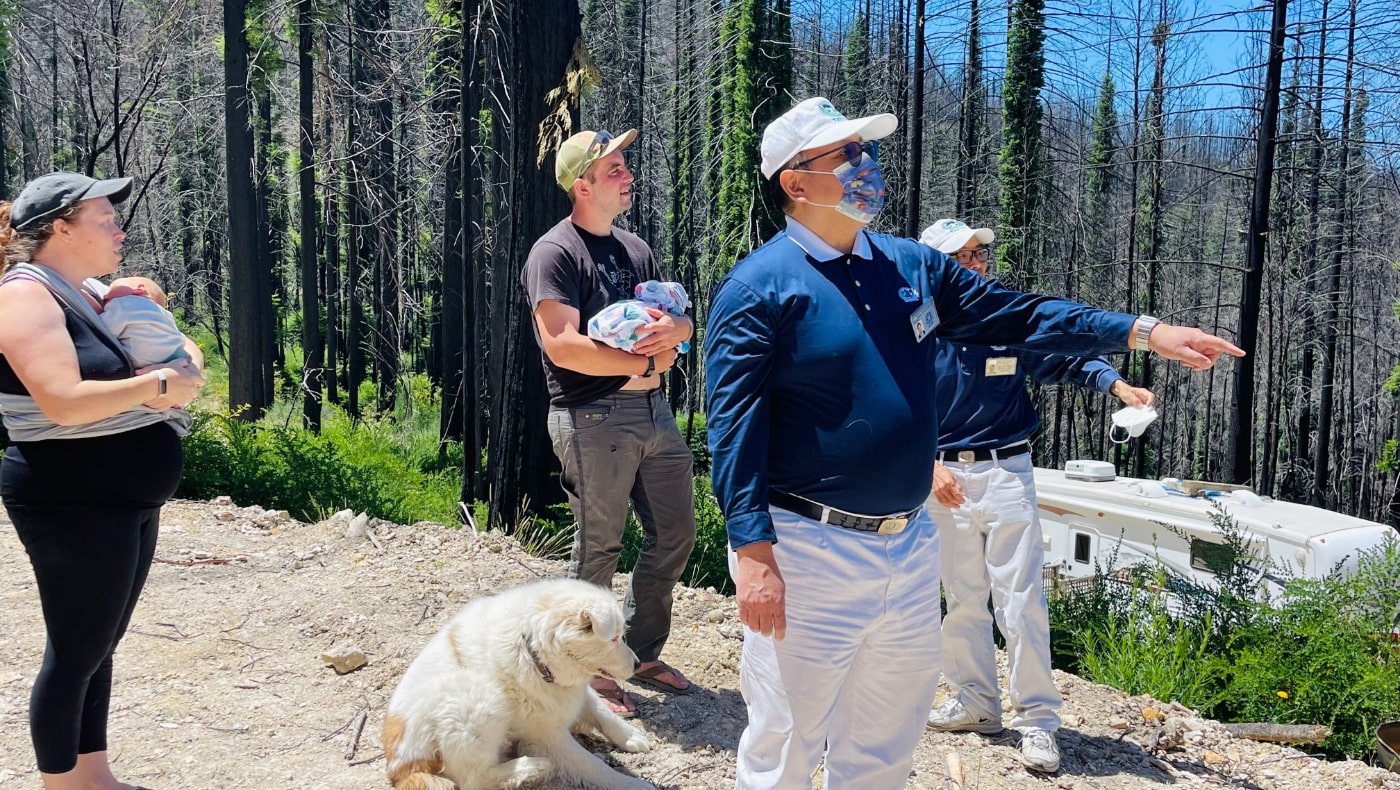
We will seize the present and push forward.
Geoffery Keller

